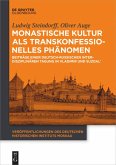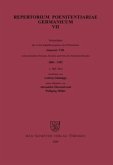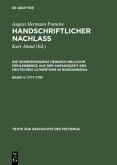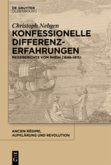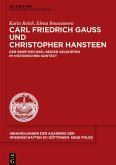In the period from 1268 to 1271 the Church was without a Head; for nearly three years, the cardinals were unable to agree on a successor for the deceased Pope Clemens IV. The study examines the causes and effects of the longest sede vacante in the history of the Church up to the present day. What split the College of Cardinals above all was the territorial political rivalries between the Italian cardinals. Nonetheless, the cardinals were able to agree on common action in the administration of the Papal States, on the appointment of bishops and the despatch of Papal Legates.
Im Zeitraum zwischen 1268 bis 1271 hatte die Kirche kein Oberhaupt: Fast drei Jahre lang konnten sich die Kardinäle nicht auf die Wahl eines Nachfolgers für den verstorbenen Papst Clemens IV. einigen. Die Studie untersucht die Ursachen und Auswirkungen dieser bis heute längsten Sedisvakanz der Kirchengeschichte. Was das Kardinalskolleg entzweite, waren vor allem territorialpolitische Rivalitäten der italienischen Kardinäle. Dennoch fand man in Fragen der Kirchenstaatsverwaltung, der Bistumsbesetzungen und der Legatenentsendung zu gemeinsamem Handeln zusammen.
Im Zeitraum zwischen 1268 bis 1271 hatte die Kirche kein Oberhaupt: Fast drei Jahre lang konnten sich die Kardinäle nicht auf die Wahl eines Nachfolgers für den verstorbenen Papst Clemens IV. einigen. Die Studie untersucht die Ursachen und Auswirkungen dieser bis heute längsten Sedisvakanz der Kirchengeschichte. Was das Kardinalskolleg entzweite, waren vor allem territorialpolitische Rivalitäten der italienischen Kardinäle. Dennoch fand man in Fragen der Kirchenstaatsverwaltung, der Bistumsbesetzungen und der Legatenentsendung zu gemeinsamem Handeln zusammen.


